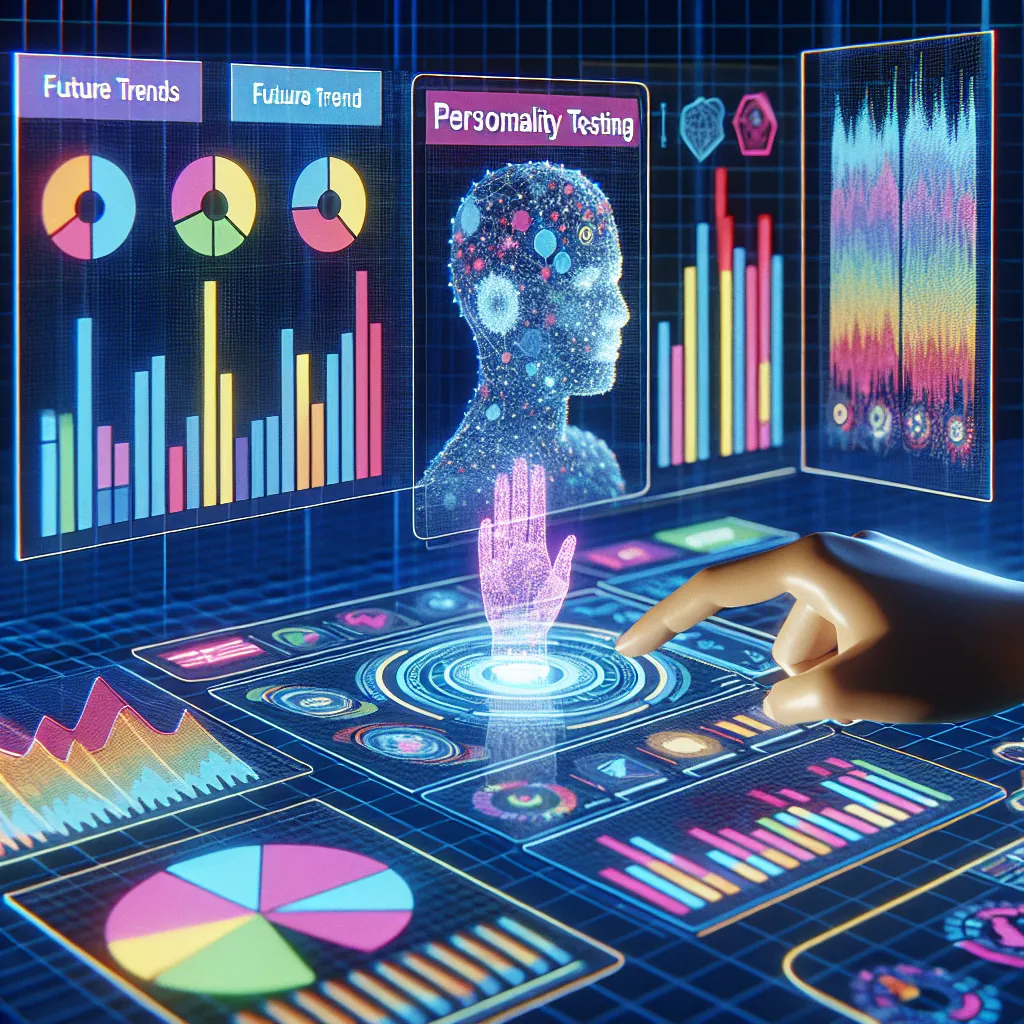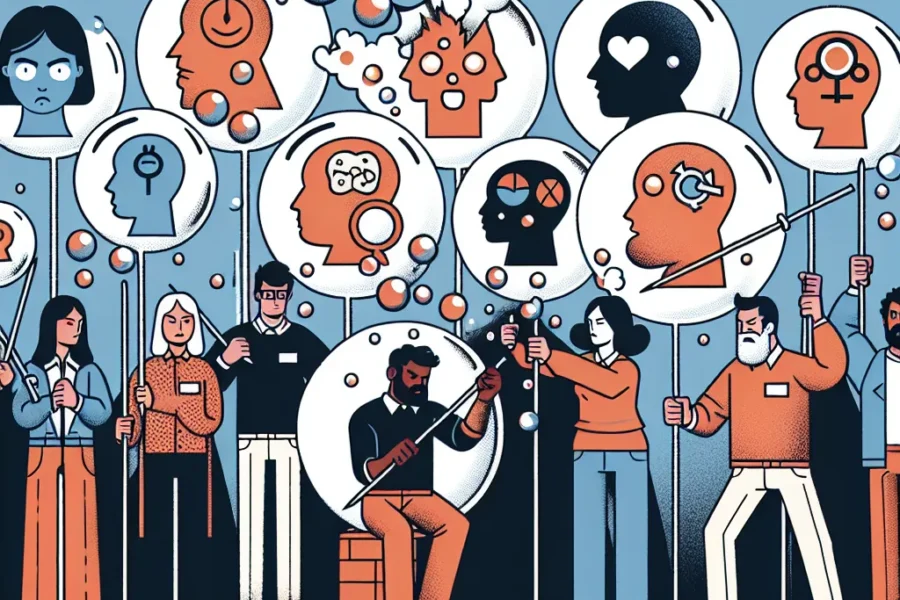The evolution of personality testing has been notable over the last few decades, and it’s apparent that we are on the verge of witnessing even more revolutionary changes. With the increasing importance of psychological tools in various realms of life such as recruitment, education, and personal development, understanding where personality testing is headed is crucial for professionals and individuals alike. In this comprehensive exploration, we’ll delve into the current trends and predict the future direction of personality testing.
One of the most significant trends we’re currently seeing in personality testing is the incorporation of technology. The proliferation of artificial intelligence (AI) and machine learning has led to the development of more sophisticated, adaptive tests. These tests can analyze vast amounts of data and refine their assessments over time, becoming more accurate in identifying personality traits. As technology evolves, we can expect to see personality tests that not only provide snapshots of users’ psychological profiles but also predictions about their future behaviors and preferences.
Another technological advancement impacting personality assessment is the use of big data. With social media and other online platforms collecting extensive amounts of information on our behaviors, preferences, and interactions, there is a potential for developing personality tests capable of analyzing this data to offer deeper insights. This could lead to customized assessments that are highly reflective of individuals’ real-world behaviors, rather than relying solely on self-reported questionnaire responses.
Mobile technology is also transforming how personality assessments are delivered and taken. With smartphones becoming ubiquitous, tests can now be administered anytime and anywhere, increasing their accessibility and convenience. This mobile-first approach is likely to become the norm, with assessments designed specifically for mobile devices, harnessing their features like touch interfaces and cameras for innovative testing experiences.
The gamification of personality tests is another trend that is gaining traction. By incorporating elements of gaming such as points, levels, and instant feedback, test-takers are often more engaged and motivated. This can lead to increased accuracy and richer data as users are likely to complete the tests with greater attention and investment.
Beyond improvements in delivery and engagement, future personality tests are expected to become more personalized and precise. With advancements in genetic research and the understanding of neurobiology, tests may soon factor in biological contributors to personality. This integration of biometric data could revolutionize the field, tailoring assessments to the unique physiological makeup of each individual.
Ethical considerations will also come to the fore as personality testing becomes more intertwined with genetics and biometrics. Issues of privacy, consent, and the potential misuse of data will be at the center of debates surrounding personality assessment. There will be a need for clear ethical guidelines and strong data protection measures to ensure that the use of advanced personality tests aligns with societal values and individual rights.
Moreover, the future of personality testing is likely to see a shift towards holistic and multi-faceted models. Traditional tests often categorize individuals into distinct personality types, which can sometimes lead to oversimplification. Future tests may integrate different theoretical frameworks to offer a comprehensive view of personality that accounts for complexity and context.
In the context of the workplace, personality testing is anticipated to play a larger role in employee development and team building. Predictive analytics will enable employers to understand not just an individual’s current fit for a role but also their potential to grow and adapt to different positions within an organization. This can lead to more strategic talent management and a workforce that is agile and better aligned with changing business needs.
The integration of virtual and augmented reality into personality testing presents further exciting possibilities. These technologies could simulate real-life scenarios where test-takers’ reactions and decisions provide insights into their personality traits. By placing individuals in immersive environments, assessors can observe behaviors more directly and within context, potentially leading to more reliable results.
In education, personality testing is likely to become more ingrained in the learning process. As educators seek to personalize learning, understanding a student’s personality can help tailor educational strategies to suit their learning styles, motivations, and interests. This customization could enhance student engagement and improve academic outcomes.
A controversial but potentially ground-breaking development in personality testing could arise from the field of predictive genetics. As we better understand the relationship between genes and behaviors, it’s conceivable that genetic testing could one day offer personality insights. While ethical and practical concerns are significant, the theoretical possibility of genetic personality testing could transform how we understand and approach human behavior.
Predictive personality testing is not without criticism, however. Concerns are raised regarding the reliability of such futuristic assessments and the risks of deterministic thinking where people may feel pigeonholed by their results. As we look towards the future, it is necessary for test creators and researchers to continue addressing validity and reliability issues to maintain the integrity of personality assessment as a scientific practice.
Despite these challenges, one thing is clear: the demand for accurate, convenient, and insightful personality testing is only going to grow. As we strive to understand ourselves and others better, and as we navigate an increasingly complex social and professional landscape, the tools we use to assess personality must evolve to keep pace with our needs.
In the future, we may see a democratization of personality testing, with open-source frameworks and community-driven development shaping how tests are crafted and validated. This participatory approach could lead to more diverse and inclusive assessments, created with input from a wider range of cultures and perspectives.
Finally, the potential for real-time, continuous personality assessment is a frontier that could redefine the field. Imagine wearable technology that tracks our interactions and moods, providing ongoing, dynamic personality profiles that evolve with our experiences. This real-time feedback could offer unprecedented opportunities for personal development and self-awareness.
As we look towards the horizon, it’s clear that personality testing is set for transformative changes that will redefine how we think about and measure the complexities of human behavior. From technological innovations to ethical debates, the future promises a more nuanced, dynamic, and potentially game-changing approach to understanding what makes us tick. Whether these advancements will deliver on their promises remains to be seen, but one thing is certain: the field of personality testing will continue to captivate our imagination and shape our conception of the human psyche.



Leave a Comment